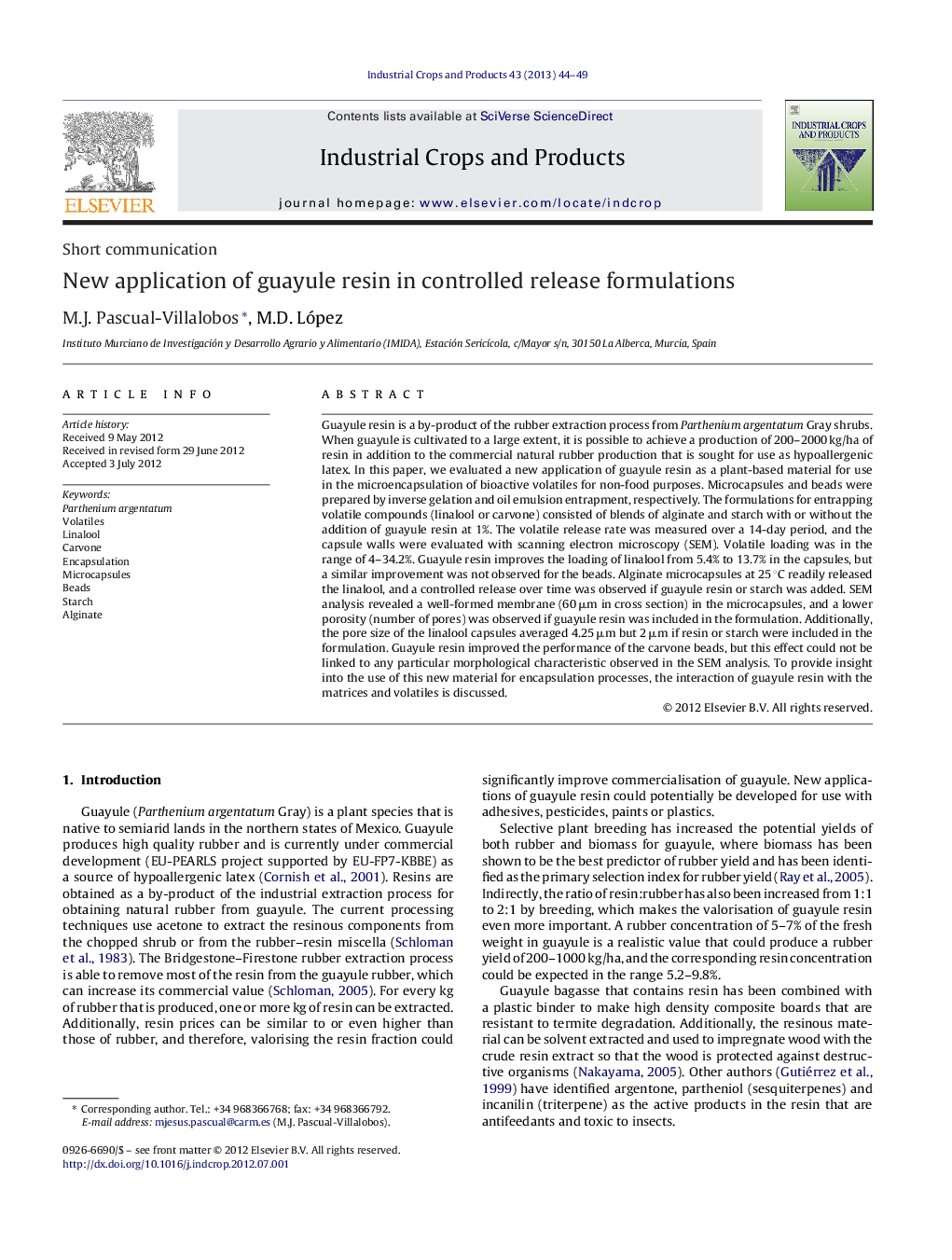| Article ID | Journal | Published Year | Pages | File Type |
|---|---|---|---|---|
| 4514093 | Industrial Crops and Products | 2013 | 6 Pages |
Guayule resin is a by-product of the rubber extraction process from Parthenium argentatum Gray shrubs. When guayule is cultivated to a large extent, it is possible to achieve a production of 200–2000 kg/ha of resin in addition to the commercial natural rubber production that is sought for use as hypoallergenic latex. In this paper, we evaluated a new application of guayule resin as a plant-based material for use in the microencapsulation of bioactive volatiles for non-food purposes. Microcapsules and beads were prepared by inverse gelation and oil emulsion entrapment, respectively. The formulations for entrapping volatile compounds (linalool or carvone) consisted of blends of alginate and starch with or without the addition of guayule resin at 1%. The volatile release rate was measured over a 14-day period, and the capsule walls were evaluated with scanning electron microscopy (SEM). Volatile loading was in the range of 4–34.2%. Guayule resin improves the loading of linalool from 5.4% to 13.7% in the capsules, but a similar improvement was not observed for the beads. Alginate microcapsules at 25 °C readily released the linalool, and a controlled release over time was observed if guayule resin or starch was added. SEM analysis revealed a well-formed membrane (60 μm in cross section) in the microcapsules, and a lower porosity (number of pores) was observed if guayule resin was included in the formulation. Additionally, the pore size of the linalool capsules averaged 4.25 μm but 2 μm if resin or starch were included in the formulation. Guayule resin improved the performance of the carvone beads, but this effect could not be linked to any particular morphological characteristic observed in the SEM analysis. To provide insight into the use of this new material for encapsulation processes, the interaction of guayule resin with the matrices and volatiles is discussed.
Graphical abstractFigure optionsDownload full-size imageDownload as PowerPoint slideHighlights► Guayule resin is composed of fatty acid triglycerides and a complex mixture of terpenoids. ► A new application of guayule resin as a plant-based material for use in the microencapsulation of bioactive volatiles is reported. ► Microcapsules composed of alginate with the addition of guayule resin or guayule resin plus starch showed less porosity and better controlled release of linalool. ► The release of carvone was improved for beads that included the guayule resin.
